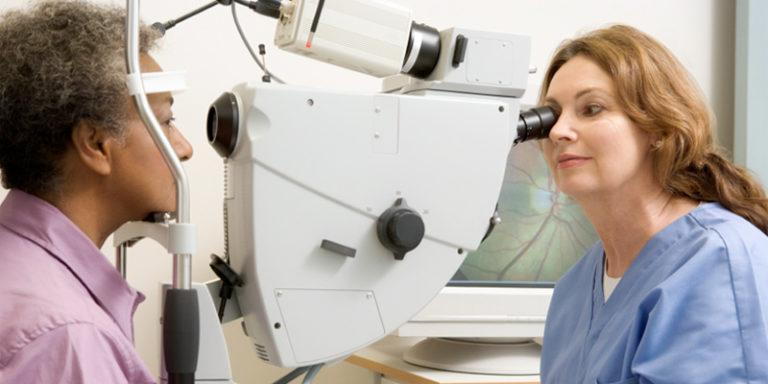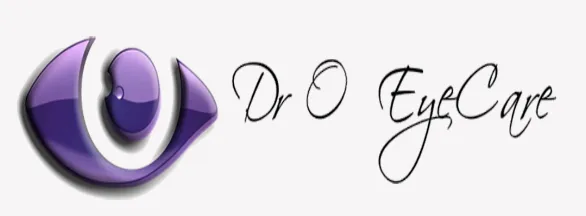
In the United States, glaucoma is one of the leading causes of blindness. Glaucoma actually describes a group of diseases that can damage the optic nerve, resulting in vision loss or blindness. The exact cause of glaucoma is not known, though the disease is generally thought to be the result of an increase in the fluid pressure inside the eye that damages the optic nerve. While it is not preventable at this time, glaucoma can be managed if it’s caught early.
Types of Glaucoma
Approximately 2.3 million Americans have glaucoma, and it’s estimated that an additional 2 million people in the United States have glaucoma – but don’t know it. Because glaucoma doesn’t have any specific warning signs, it’s extremely important to have regular checkups with an optometrist.
In the most common form of glaucoma, primary open-angle glaucoma, damage develops slowly and usually without any symptoms. At first, this disease affects peripheral vision; because of this, many people are not aware they are affected until they have significant vision loss.
A less common type is acute angle-closure glaucoma. This type generally occurs more quickly, causing symptoms that may include nausea, severe eye pain, seeing halos or colored rings, blurred vision, and eye redness. If a patient experiences a combination of these symptoms, it should be treated as an emergency, as severe vision loss might occur quickly.
In normal-tension or low-tension glaucoma, eye pressure remains within the normal range, but the optic nerve sustains damage for unknown reasons.
Secondary glaucoma is the result of a past injury or other disease of the eye. This glaucoma may be caused by a variety of medical conditions that lead to damage.
Glaucoma Risk Factors
Genetics – Ethnicity plays a role in one’s risk for glaucoma. African Americans, for example, have six to eight times the risk of Caucasians for developing the disease, and they also have a greater probability of long-term impairment. People with Hispanic or Asian heritage are also at a relatively high risk of the disease. Glaucoma is also a trait that tends to run in families, regardless of ethnicity. Knowing if you have a family history of glaucoma is important; if you do have a familial history of the disease, be sure to tell your doctor.
Age – Though glaucoma can occur at any age, risk increases as we age, particularly after the benchmarks of ages 40 and 60. According to the American Optometric Association, we become six times more likely to develop glaucoma past age 60.
Overall Health – Past injury and general health may also affect our vision. Those with high blood pressure, heart disease, and diabetes may increase risk of glaucoma – even those who suffer from asthma may be at risk due to high use of corticosteroids from inhalers. In addition, past eye injuries may be a risk factor for glaucoma, as well – be sure to let your doctor know about incidents such as these so she may keep in mind your overall eye health.
Diagnosis and Treatment
Like many eye diseases, the best way to catch glaucoma is to have a regular eye exam by an optometrist. To diagnose diseases like glaucoma, Uptown Eye Care doctors perform a Total Care Exam consisting of a Vision Assessment and an Ocular Health Evaluation, which uses special tests to check for signs of eye diseases such as glaucoma, vascular disease, or macular degeneration. These tests are all quick, safe, and non-intrusive. The typical test for glaucoma is performed using a tonometer – otherwise known as the “air puff” test. (Uptown uses an ICare tonometer, which does not require these uncomfortable puffs of air.)
Because it is a progressive disease, the best way to “treat” glaucoma is to catch it early. Though it cannot be prevented, glaucoma can be managed through medications and/or surgery; prescription eye drops are the most common treatment for glaucoma in its early stages.
